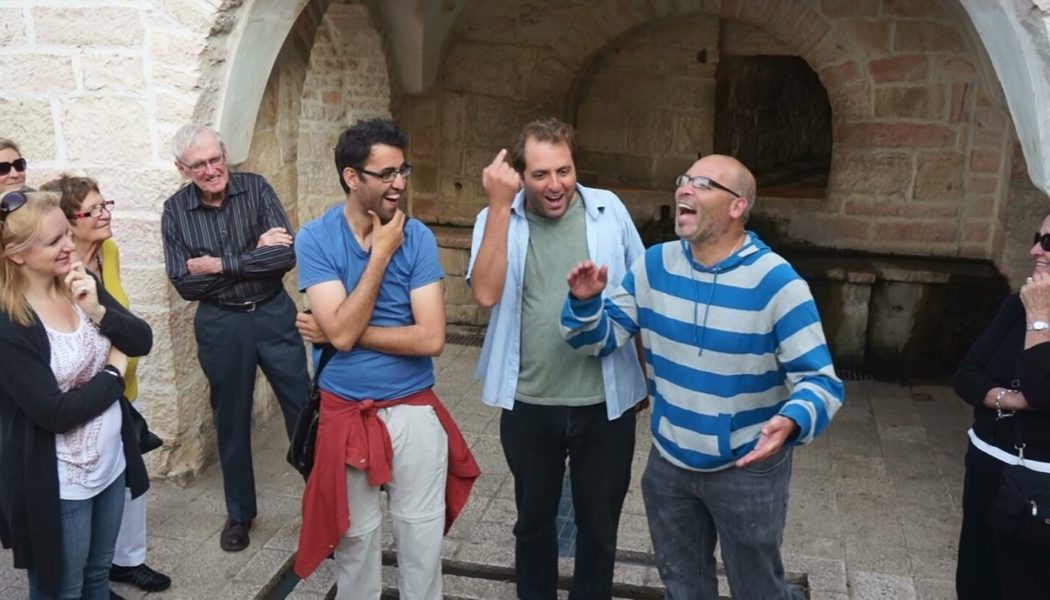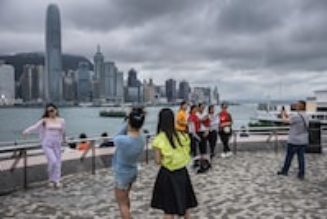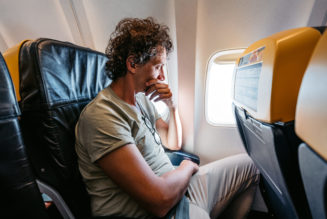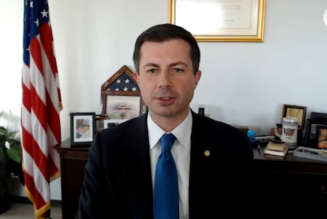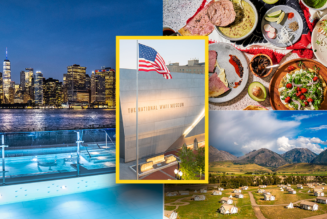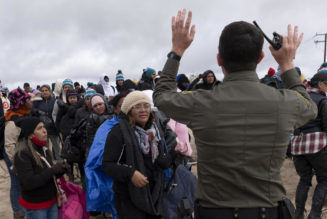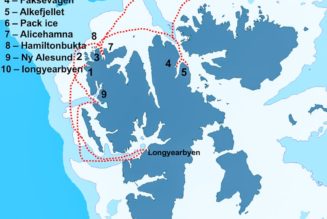Aziz Abu Sarah and Scott Cooper are peacebuilding practitioners and the co-CEOs of Mejdi Tours, a tour company founded on the belief that tourism should be a vehicle for a more positive and interconnected world. In this joint op-ed for AFAR, they offer their perspective on how to productively move forward from the current conflict in the Middle East.
“Hundreds of people were murdered, and a war was declared.” These were the words we read, with horror, on the morning of October 7. It didn’t take long to find out that many of our colleagues, friends, and relatives were, and still are, directly impacted by the Israel-Hamas war.
We learned that peace activist Muhammad Darawshe lost his son—a medic who was killed while helping heal people. Vivian Silver, a seasoned peacemaker whom we met many years back, was taken hostage. We know dozens of others who lost family members in Israel, Gaza, and the West Bank.
Advocating for peace does not make you immune to violence.
Especially over the last few weeks, the world says we must hate each other. Our very partnership is proof of that fallacy. Aziz is Palestinian Arab, and Scott is American Jewish. We are business partners, best friends, and consider each other brothers.
We came together through the shared belief that travel is more than seeing the world—it is the industry of diplomacy, peacemaking, and dialogue. We wanted to show people through travel what is missing from our media outlets. So in 2009, we created Mejdi Tours and introduced a “dual narrative” approach to travel, beginning in Israel and Palestine. We asked Israeli and Palestinian guides to lead tours together to teach travelers about the historical conflict from both sides, introducing travelers to many local voices in the process. We now run these tours around the world, including in Sarajevo, Belfast, and Washington, D.C. (blue vs. red divide)—and in doing so, we have learned valuable lessons about peacemaking.
Nothing is more powerful in breaking stereotypes than meeting the ‘other’ and truly listening to their story.
Wherever we look in the world, we find growing divides—fear, hatred, and aggression. We are forced into a false binary of “us vs. them.” We perpetuate the political arguments taught to us. We live the histories handed down to us. But there is another way: socially conscious travel, a form of responsible travel that focuses on the human element of destinations and the building of relationships.
Nothing is more powerful in breaking stereotypes than meeting the “other” and truly listening to their story.
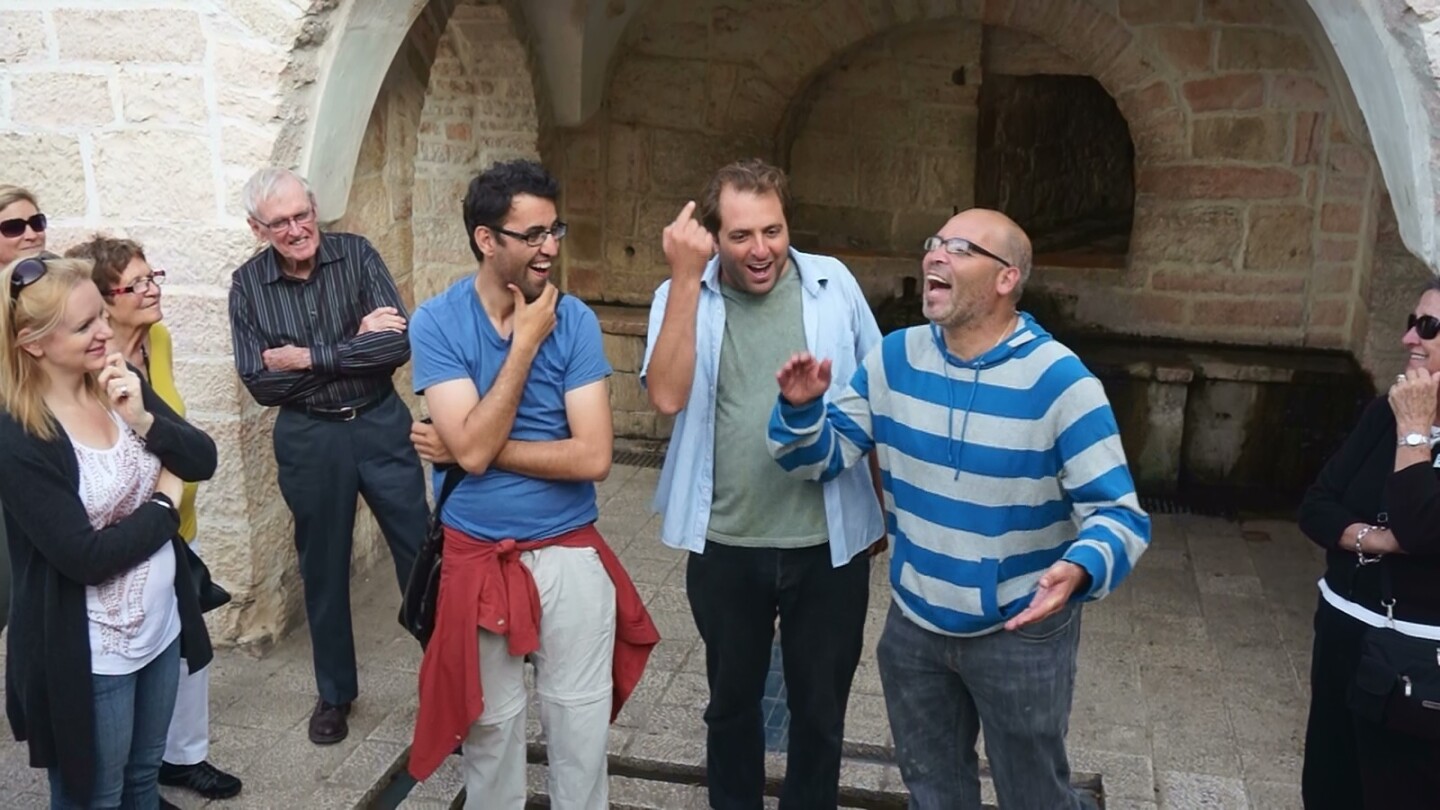
Mejdi co-CEO Aziz Abu Sarah (in the blue t-shirt) leads a Dual Narrative tour in Israel and Palestine, which gives travelers the opportunity to meet people from different communities and listen to their stories.
Mejdi Tours
When we began the Dual Narrative work, some of our friends in the tourism industry told us the guides would fight, that they’d spend the tour yelling at each other, and that travelers would be uncomfortable. This didn’t happen. Our guides don’t fight because they tell their personal stories—those that represent their life experiences, even if in conflict with what the other says. They are perspectives. They build a bridge for travelers to understand the region and its immense complexity. Travelers learn how no place is homogeneous, and no country has a single story. Every place is made up of varying viewpoints and experiences.
Personal narratives are often harder to dismiss than faceless news reports. They inspire dialogue, an exchange of ideas, and collaboration. We’ve witnessed people overcome fear and even hatred by being exposed to the stories of the “other” in a way that can inspire familiarity.
On our Dual Narrative tour in Israel and Palestine, travelers meet with Jewish, Muslim, and Christian people. Many travelers have admitted to me that they had prejudices toward Jews or Muslims before the tour. The vast majority left with a new perspective and much less fear. And 93 percent of our travelers reported having more compassion toward the “other” by the end of the tour.
Travelers can act as citizen diplomats who build bridges across these kinds of divides, every step an act of peacemaking. Over a billion people travel internationally every year. If the industry were to realize the potential for travel as an act of peace, travel could change the world. Peacemaking can’t be left to diplomats, nonprofits, and academics. It doesn’t work, and it doesn’t last.
Travelers can act as citizen diplomats who build bridges across these kinds of divides, every step an act of peacemaking.
In the last two weeks, we have received hundreds of messages from our travelers who wanted to check on the safety of their guides, experts they met, and the people who hosted them for meals—including people who visited the region more than 10 years ago. This is even more special because our travelers come from a wide variety of political, ethnic, and religious backgrounds. So we had people from more “Pro-Israel’’ communities checking on their Palestinian friends and more “Pro-Palestine” communities checking on their Israeli friends.
As antisemitism and Islamophobia rise yet again in our communities across the world, we can call our Jewish, Muslim, and Arab neighbors. We may not be able to travel to Israel and Palestine right now, but we can visit restaurants, attend events where we live, listen to podcasts, or read books about the region. The world needs citizen diplomats to engage and learn, to create friendships, and then spread those stories.
Seeing the world is an education. Understanding and caring for its people is peace.
